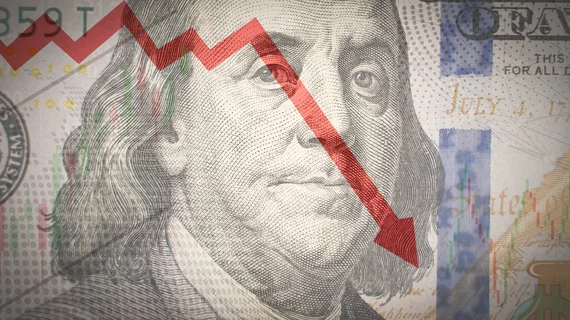Americans strongly oppose Medicare cuts to critical radiology services, new RBMA poll finds
Americans strongly oppose planned Medicare cuts to critical imaging services, according to new polling results from the Radiology Business Management Association released Thursday.
About 76% of those surveyed said they’re against reducing physician payments for Medicare services. Another 80% of women reached disagree with cutting doc pay for mammograms, RBMA noted.
The findings come from a poll of 521 Americans conducted this year by the Remington Research Group and commissioned by the Radiology Patient Action Network. RPAN is a coalition of radiology groups fighting for better funding of imaging services amid a planned 2.8% cut to the conversion factor used to calculate Medicare physician payments.
“These findings should serve as a wake-up call to policymakers," Linda Wilgus, MBA, co-executive director of the RBMA, said in a statement shared Oct. 24. “At a time when Americans are already facing increasing delays in accessing healthcare, any cuts to diagnostic imaging services would be devastating.”
Nearly 80% of consumers surveyed said the federal payment program for seniors should be investing more in imaging and other healthcare services. Another 72% of Medicare beneficiaries are concerned physician pay cuts could limit their access to diagnostic services. About 10% of seniors 65 and older also said they have skipped recommended secondary screenings because of high out-of-pocket costs, “highlighting the impact of financial barriers,” RBMA noted.
The findings come as RBMA, the American College of Radiology and other imaging lobbying groups ask Congress to pass reforms that make physicians whole. Earlier this month, 233 representatives urged leaders in the U.S. House to approve a doc fix in the lame duck session after the Nov. 5 presidential election. Radiology provider RadNet said in August the proposed cuts—mandated to balance the federal budget and account for provider pay increases elsewhere in the physician fee schedule—would reduce revenues by $8 million.
"The message from the American public is clear: Instead of cutting reimbursements for diagnostic imaging, we should be investing in these critical services.” Wilgus said in the statement. “We're calling on CMS to withdraw these proposed cuts and for Congress work with the healthcare community to ensure all Americans have access to the diagnostic imaging services they need,” she added later.

